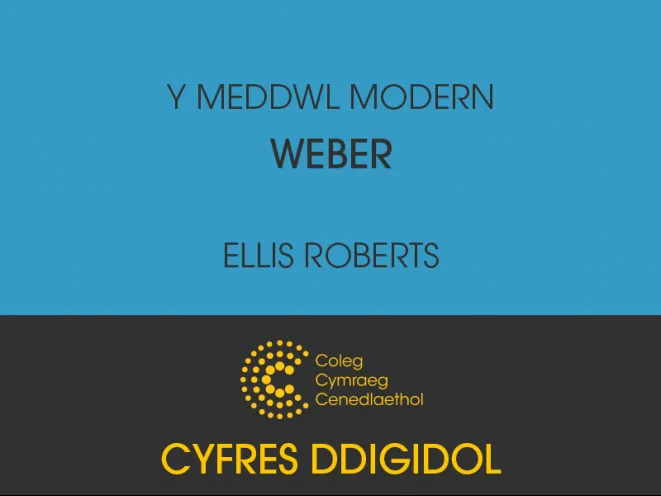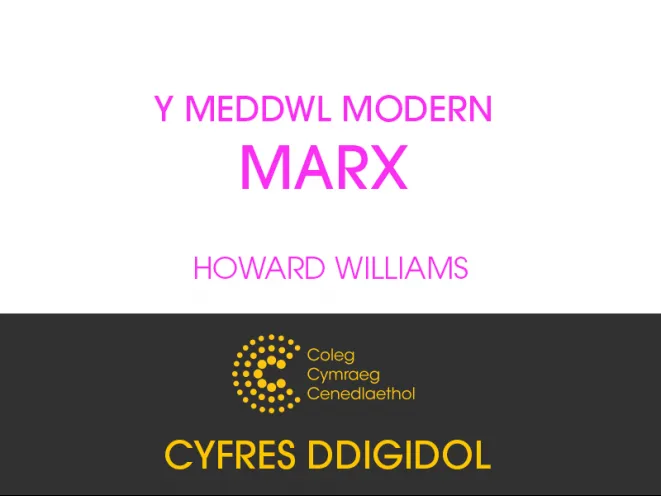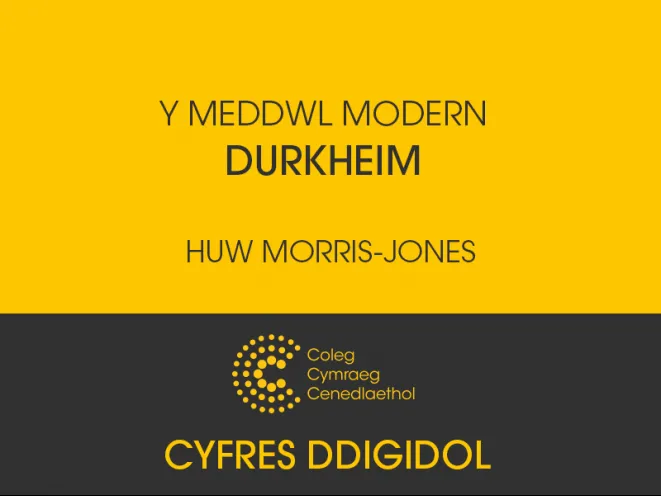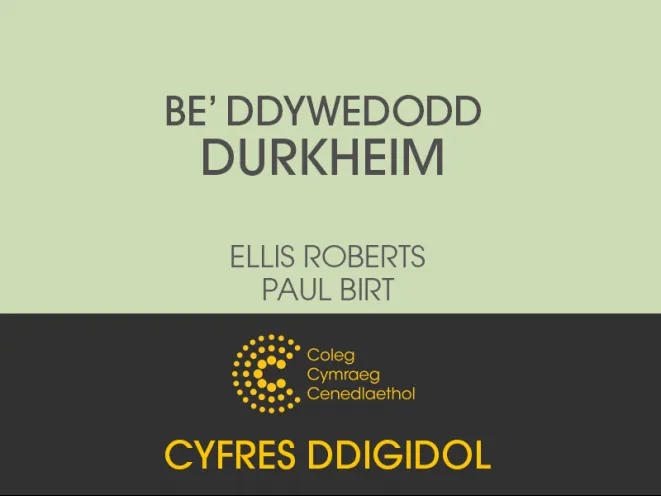This article considers the out-migration of young people from the Welsh-speaking heartlands in terms of their aspirations and hopes for the future. The original doctoral research (2014), is based on Hywel Jones’ (2010) work, which argues that young people born outside of Wales are four times more likely to migrate from Wales than young people born here. The research attempts to establish the main factors that affect rates of out-migration among young people born outside of Wales and those born into non-native families. The article concludes that the main drivers of rates of out-migration among this group are factors such as sense of belonging and the extent of community integration, rather than solely economic factors. In particular, it examines how culture, nationality, and considerations pertaining to the Welsh language have an impact on this trend, which has important implications in terms of the linguistic retention of the ‘traditional’ Welsh speaking areas.
‘Beth yw’r ots gennyf i am Gymru?’: The out-migration and aspirations of young people from the Welsh heartland...
(D.J. and I)
‘D.J. a fi’ draws on aspects of the work of Welsh author D.J. Williams and examines their potential to inspire the creation and inform the analysis of contemporary site-specific performance. Williams’s memoir, The Old Farmhouse, provides unique insights into the landscape of childhood, the located nature of memory, the dramaturgy of storytelling and the role of the teller. The author employs these insights to develop and suggest a number of practical and theoretical approaches to the use of biography, family history, domestic architecture and local knowledge in devised performance. Referring extensively to his own work, ‘Bubbling Tom’ (2000), a peripatetic solo performance staged in the village of his own upbringing in rural Lincolnshire: a guided tour of the places he knew at the age of seven – he discusses the importance of Williams’s work in inspiring dramatic forms that seek to reveal the grain of experience by addressing the intimate and familiar, the details of everyday life and its fabric.
Choice and the citizen? Health decisions and their implications for developing a Welsh citizenship
Health services offer a privileged space to define the proper relationship of the citizen and the modern state. Individuals have been expected to make choices in health care in Wales and England since the 1980s. A new vaccine against some types of cervical cancer was recently introduced for girls. Parents are expected to consent on behalf of their daughters. This paper reports the results of the largest qualitative study in this area world-wide. It depicts attitudes to health care choice and discusses parents’ experiences of consenting or not. Parents’ decisional strategies in the face of uncertainty are analysed. Consequences of the study relate to the individuals’ relationship with the Welsh National Health Service (NHS) and to developing a concept of Welsh citizenship.
(Citizenship, the Welsh Language Board, and marketing the Welsh language)
This paper offers a brief examination of the approach taken by the Welsh Language Board, as the principal language policy and planning body in Wales, to aspects of prestige planning and the Welsh language. It describes how devolution, and the recent, first ever, national review by the Welsh Assembly Government of Welsh language policy, provide the immediate context for the work of the Welsh Language Board. The key policy document resulting from that review, Iaith Pawb, is critically analysed and the relationship to it of prestige planning is identified. The Welsh Language Board’s practice of prestige planning is discussed in relation to the discourses of neo-liberalism and post-colonialism in a way that highlights the Board’s focus on consumers rather than citizens.
'The Light shall Return': Music and dementia in Wales
This article focuses on the effects of music on sufferers of dementia as a means of communicating through familiar songs within a Welsh context. The fieldwork is based on the author’s experience singing to the accompaniment of the Celtic harp at an assessment unit for dementia and at resident homes for the elderly on the Llŷn Peninsula during the Summer of 2010 and presents insights gained from observing patients recalling familiar songs when conversation was difficult. On this basis, the article examines the way in which music can assist patients who suffer from this condition, describing and analysing the results.
Cynhadledd Ryngwladol 2014
Yn y casgliad hwn ceir cyflwyniadau o Gynhadledd Ryngwladol y Coleg Cymraeg Cenedlaethol, 1-3 Gorffennaf 2014. 'Pa le i'n hiaith mewn Addysg Uwch?' oedd thema'r gynhadledd ac mae'r cyflwyniadau'n ymwneud yn bennaf â pholisi iaith ac addysg yng Nghymru ac Ewrop.
The Welsh Government’s plan to introduce a system of presumed consent for organ donation
The Welsh Assembly Government will introduce a system of presumed consent for organ donation in 2015. According to this scheme, if adults in Wales have not expressed their opposition to the use of their organs after their death, and in the absence of opposition from their families, permission to use their organs will be presumed by the authorities. According to the present system, the onus is on the individual to register as a donor, but if this new scheme is implemented, it will be the responsibility of the individual to deregister as a donor. This essay is a legal and ethical evaluation of the proposed changes.
Y Meddwl Modern: Weber – Ellis Roberts
Max Weber is recognised as one of the foremost founders of modern sociology. This volume places him in the tradition of sociology and outlines some of his major contributions: his idea of 'verstehen' or 'sociological imagination', his involvement in the great debate about the relationship between capitalism and the Protestant religion, and his 'ideal types' or definitions of the basics of particular regimes.
Y Meddwl Modern: Marx – Howard Williams
An illustration of the life of Karl Marx: his ideas, the roots of his philosophy and his influence on the world.
Y Meddwl Modern: Durkheim – Huw Morris Jones
Emile Durkheim was the first to hold a university chair in sociology, and his ideas remain of fundamental importance to all who want to understand the origins of the subject. He adopted the image of society as an organism, each part of which has a particular role to play in ensuring the well-being of the whole body. His ideas include an analysis of the social origins of religion, in particular the suggestion that any religious worship is 'worship of society'; its emphasis on what he called 'anomie' as the root of dispute and unrest in the life of an individual and society; and his original and important study of suicide as a social phenomenon. His influence is seen in fields as diverse as criminology on the one hand and literary criticism on the other.
E-lawlyfrau Syniadau Gwleidyddiaeth ('Political Ideas E-books')
Digital resources introducing the core ideas, concepts and principles of Politics.
Be Ddywedodd Durkheim – Ellis Roberts a Paul Birt
Introduction to the ideology of sociologist Emile Durkheim in his own words, translated into Welsh. Durkheim believed that it was possible to create a science to study sociology, and was one of the main founders of modern sociology. According to Durkheim, an individual and his or her actions are controlled by society. He also studied the role of religion in society.










